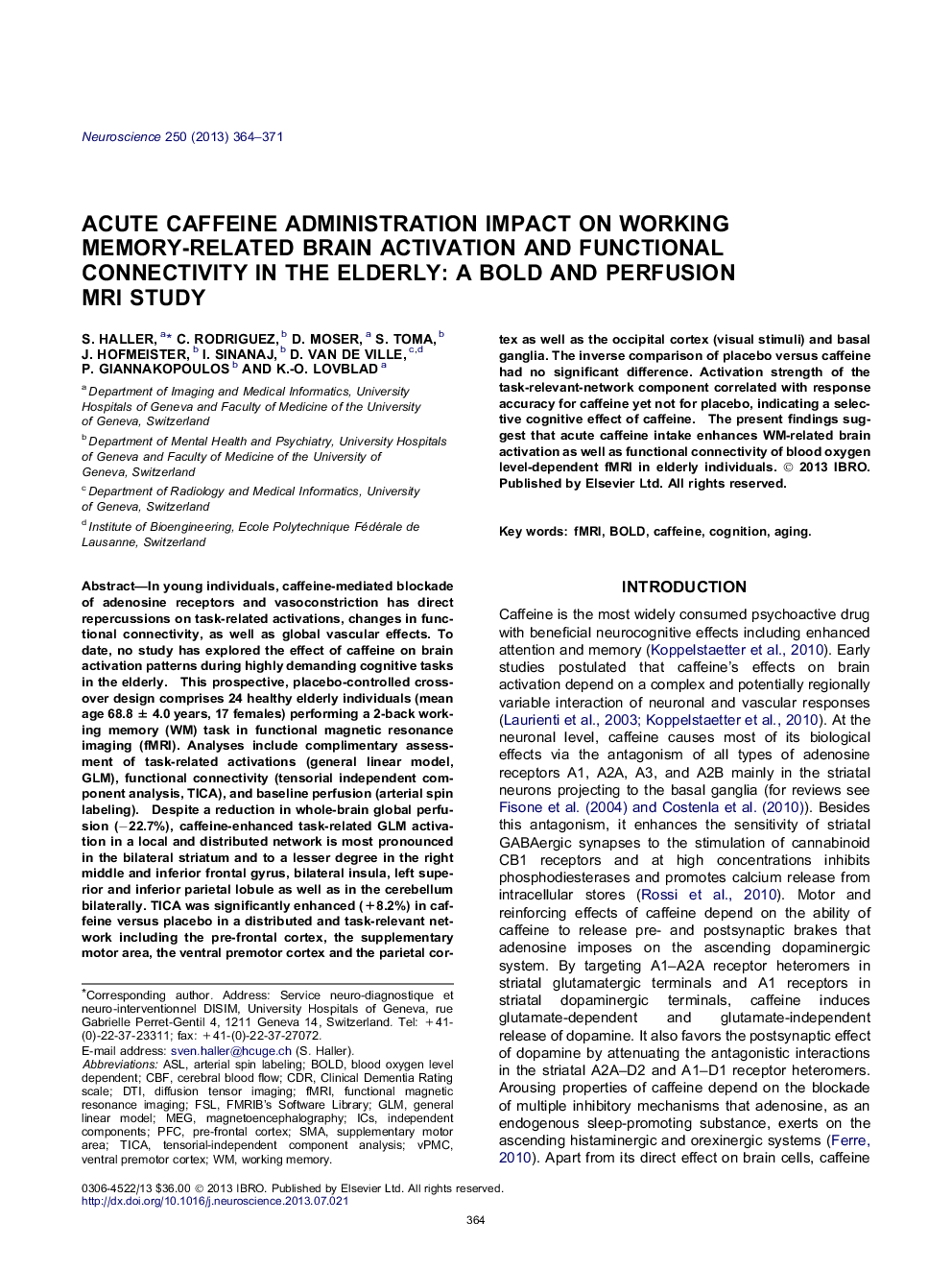| کد مقاله | کد نشریه | سال انتشار | مقاله انگلیسی | نسخه تمام متن |
|---|---|---|---|---|
| 6274494 | 1614826 | 2013 | 8 صفحه PDF | دانلود رایگان |

- Caffeine enhances task-related BOLD activation and functional connectivity in the elderly.
- Task-related BOLD activation enhancement predominates in the striatum.
- Functional connectivity increases in working memory-related networks by 8.2%.
- Caffeine reduces baseline perfusion by 23% (global vasoconstriction).
In young individuals, caffeine-mediated blockade of adenosine receptors and vasoconstriction has direct repercussions on task-related activations, changes in functional connectivity, as well as global vascular effects. To date, no study has explored the effect of caffeine on brain activation patterns during highly demanding cognitive tasks in the elderly.This prospective, placebo-controlled crossover design comprises 24 healthy elderly individuals (mean age 68.8 ± 4.0 years, 17 females) performing a 2-back working memory (WM) task in functional magnetic resonance imaging (fMRI). Analyses include complimentary assessment of task-related activations (general linear model, GLM), functional connectivity (tensorial independent component analysis, TICA), and baseline perfusion (arterial spin labeling).Despite a reduction in whole-brain global perfusion (â22.7%), caffeine-enhanced task-related GLM activation in a local and distributed network is most pronounced in the bilateral striatum and to a lesser degree in the right middle and inferior frontal gyrus, bilateral insula, left superior and inferior parietal lobule as well as in the cerebellum bilaterally. TICA was significantly enhanced (+8.2%) in caffeine versus placebo in a distributed and task-relevant network including the pre-frontal cortex, the supplementary motor area, the ventral premotor cortex and the parietal cortex as well as the occipital cortex (visual stimuli) and basal ganglia. The inverse comparison of placebo versus caffeine had no significant difference. Activation strength of the task-relevant-network component correlated with response accuracy for caffeine yet not for placebo, indicating a selective cognitive effect of caffeine.The present findings suggest that acute caffeine intake enhances WM-related brain activation as well as functional connectivity of blood oxygen level-dependent fMRI in elderly individuals.
Journal: Neuroscience - Volume 250, 10 October 2013, Pages 364-371